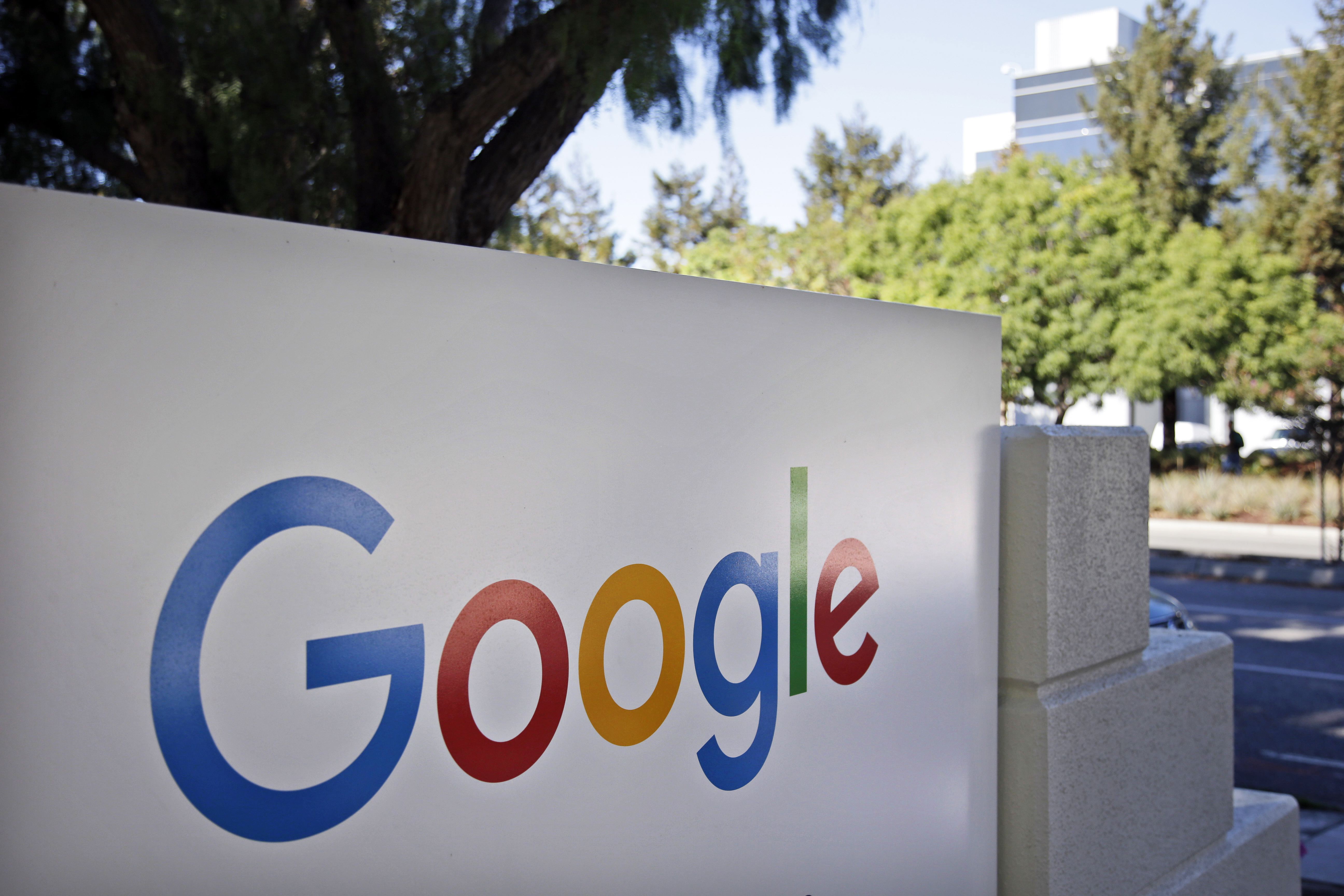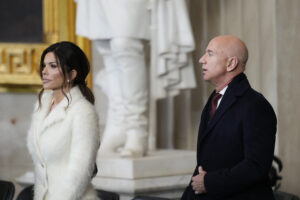Is the Government Finally Going After Google and Amazon?
Agencies are taking steps toward investigations of the tech behemoths. Google headquarters in Mountain View, Calif. (Marcio Jose Sanchez/ AP)
Google headquarters in Mountain View, Calif. (Marcio Jose Sanchez/ AP)
The U.S. Department of Justice is facing what Politico calls a “major test” of its antitrust abilities as it takes steps toward an initial investigation of Google, as The Wall Street Journal reported Friday. The Washington Post also reported Friday that the Federal Trade Commission is considering an investigation of Amazon. While these reports don’t mean official investigations have been opened, even small steps, as Politico writer Nancy Scola says, is “a clear signal that two years of a bipartisan anti-Silicon Valley backlash in Washington may be yielding concrete action.”
Both moves, as the Post reported, are “the result of the FTC and the Department of Justice, the U.S. government’s leading antitrust enforcement agencies, quietly divvying up competition oversight of two of the country’s top tech companies.”
On Monday, the Wall Street Journal also reported that the FTC will lead an antitrust investigation into Facebook, and the House Judiciary Committee will begin its own investigation into the technology industry, examining competition in digital markets. The process, the Journal reports, “will include multiple hearings, along with requests for information to the major businesses.”
According to the Post, the new oversight is a sign that both agencies are attempting to improve their supervision of tech companies. Earlier this year, as the Post points out, “The FTC established a special task force it said would monitor tech and competition, including ‘investigating any potential anti-competitive conduct in those markets, and taking enforcement actions when warranted.’ ”
As Scola explains:
A move against Google would be in keeping with the agenda of DOJ antitrust chief Makan Delrahim, a Trump nominee who has been talking up the idea of subjecting internet firms to closer examination. In a speech last year, he said that “If there is clear evidence of harm to competition in digital platforms, enforcers must take vigorous action and seek remedies that protect American consumers.”
President Trump too, has accused tech companies like Google of being unfairly prejudiced against him. At a March news conference with Brazilian President Jair Bolsanaro, Trump said, “Something is happening with those groups of folks that are running Facebook and Google and Twitter, and I do think we have to get to the bottom of it.”
If undertaken, a DOJ investigation of a potential Google monopoly would focus on the company’s advertising and search businesses, according to the Times’s sources, who spoke on condition of anonymity. According to those sources, the impetus for even considering an investigation came, at least partly, from competitor complaints. If an investigation does come to pass, it’s not clear what penalties Google would face, or if the DOJ would attempt to break up the company.
It’s also not clear what actions or penalties the FTC might pursue against Amazon. The company, as The New York Times explains, “has been criticized for using its vast online sales site to edge out competitors and harm third-party sellers that use the platform to sell goods.”
As had Google, Amazon declined to comment to both Politico and the Times.
Microsoft’s experience, however, may offer an example of potential consequences, or at least a cautionary tale. As the Times explains, “A prospect that should really worry Google and Amazon, is a replay of the government’s case against Microsoft in the 1990s. Microsoft did not have to break itself into two, which was the government’s goal. But the company was distracted for at least a decade, which allowed space for start-ups like Google. Microsoft’s reputation took a dive.”
Microsoft aside, it’s been nearly 35 years since the last time the U.S. government split up a corporate behemoth, when it broke AT&T into eight companies. The FTC previously investigated Google’s search ranking practices for its competitors in 2011, but the investigation ended after two years with only minor voluntary commitments from Google to change its practices.
Your support is crucial...As we navigate an uncertain 2025, with a new administration questioning press freedoms, the risks are clear: our ability to report freely is under threat.
Your tax-deductible donation enables us to dig deeper, delivering fearless investigative reporting and analysis that exposes the reality beneath the headlines — without compromise.
Now is the time to take action. Stand with our courageous journalists. Donate today to protect a free press, uphold democracy and uncover the stories that need to be told.






You need to be a supporter to comment.
There are currently no responses to this article.
Be the first to respond.